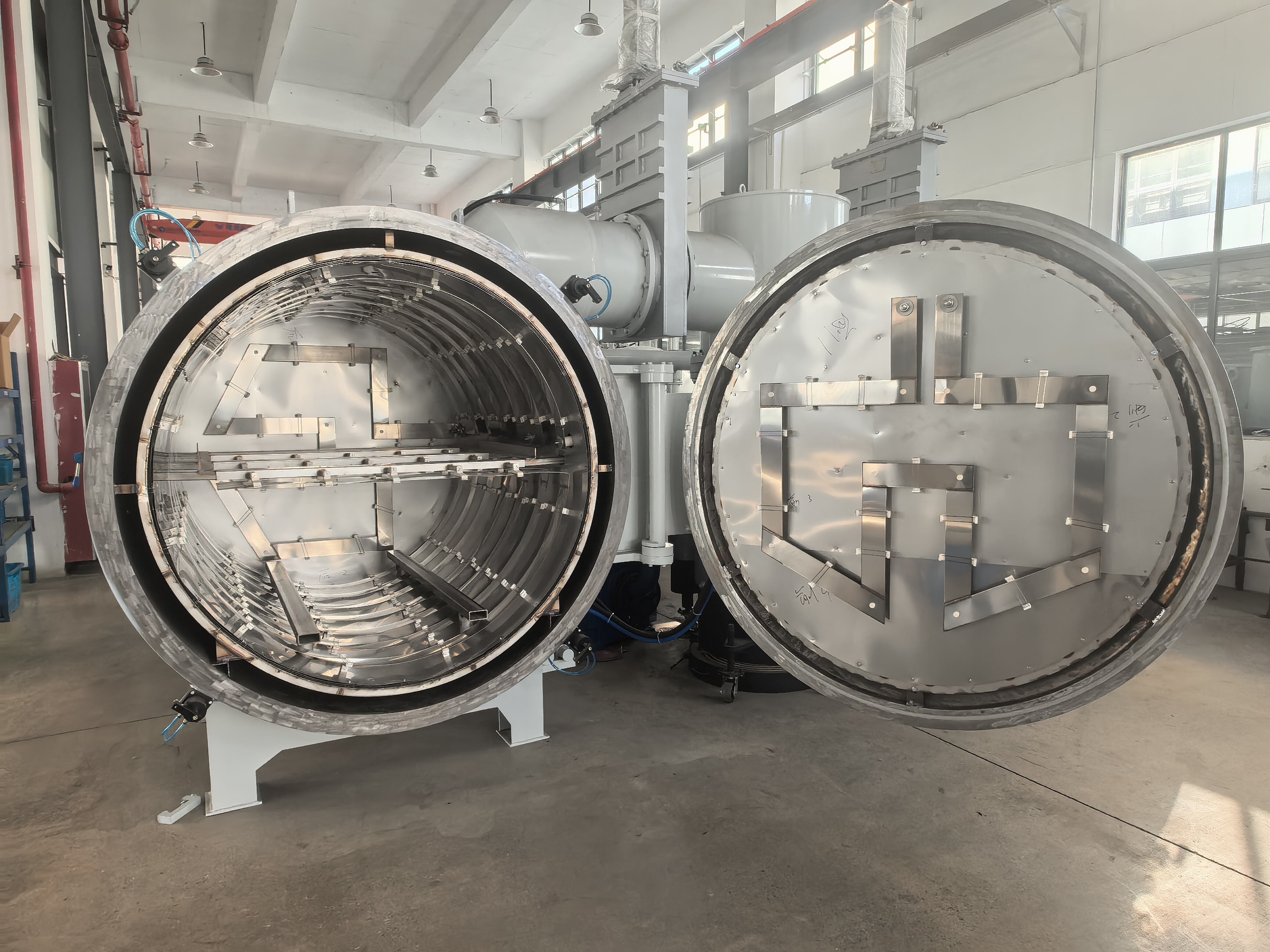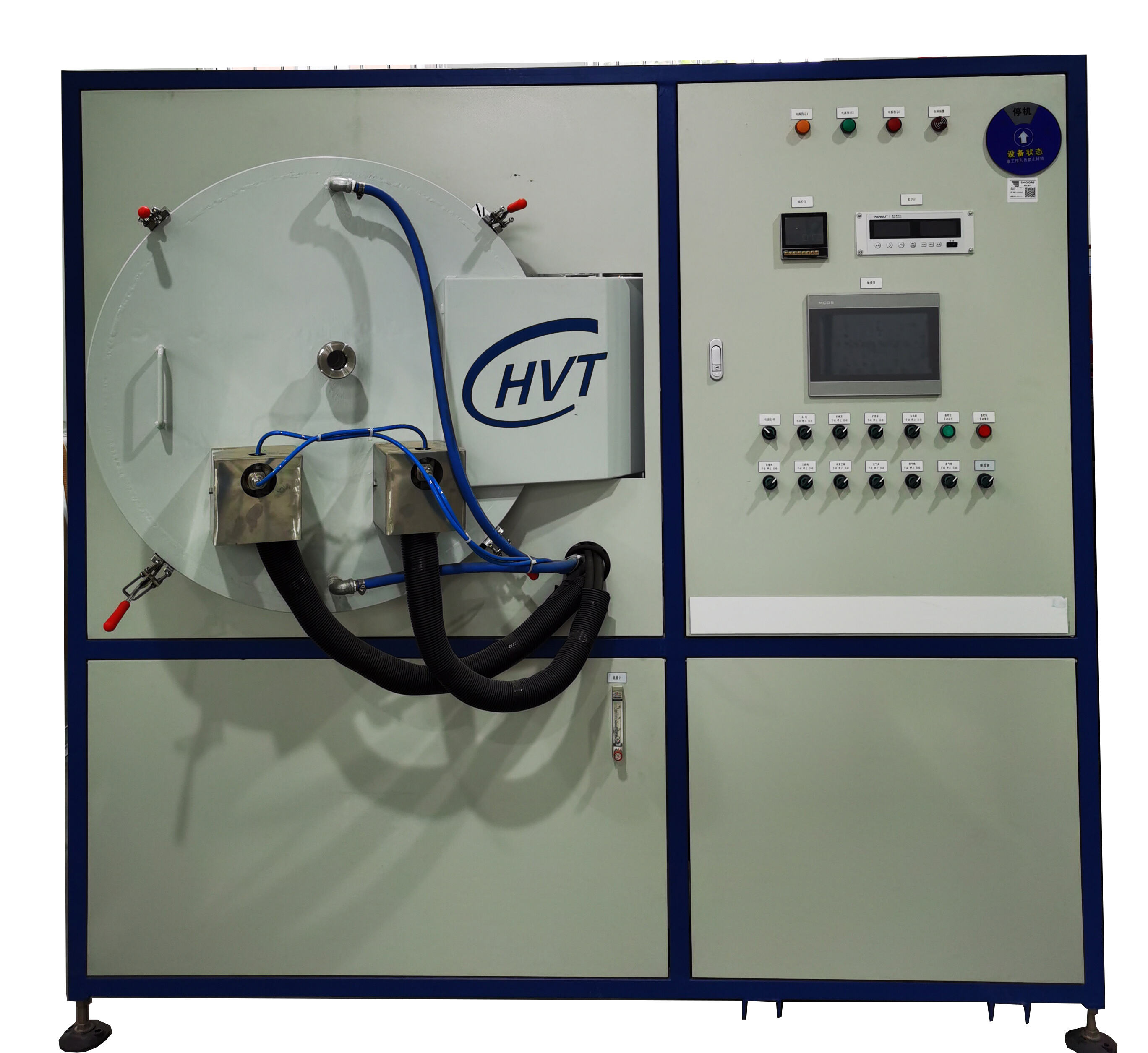Understanding the Critical Role of Vacuum Furnaces in Modern Manufacturing
Vacuum furnaces represent a cornerstone technology in modern industrial manufacturing, offering unparalleled precision and control in heat treatment processes. These sophisticated systems operate by heating materials in an environment devoid of air or other gases, enabling exceptional quality outcomes across numerous applications. The controlled atmosphere prevents unwanted chemical reactions while allowing for precise temperature management, making vacuum furnaces indispensable in various industrial sectors.
The technology behind vacuum furnaces has evolved significantly over the past decades, incorporating advanced controls and automation to meet increasingly demanding manufacturing requirements. Today's vacuum furnaces can achieve extremely high temperatures while maintaining pristine processing conditions, essential for producing high-performance materials and components used in critical applications.
Core Applications in Aerospace and Aviation
Advanced Heat Treatment for Aircraft Components
In the aerospace industry, vacuum furnaces play a vital role in processing critical components that require absolute precision and reliability. Engine parts, turbine blades, and structural elements undergo specialized heat treatment processes in vacuum furnaces to enhance their mechanical properties and ensure long-term performance under extreme conditions. The controlled environment prevents surface oxidation and decarburization, maintaining the exact specifications necessary for aerospace-grade materials.
Modern aircraft manufacturers rely heavily on vacuum furnaces for treating complex geometries and sophisticated alloys used in next-generation aircraft designs. These furnaces enable the production of components with superior strength-to-weight ratios, crucial for fuel efficiency and performance optimization in aviation applications.
Specialized Processing for Space Technology
The space industry demands materials and components that can withstand extreme conditions beyond Earth's atmosphere. Vacuum furnaces provide the perfect environment for processing these specialized materials, from satellite components to spacecraft structural elements. The ability to precisely control temperature profiles and atmospheric conditions ensures the development of materials with exceptional thermal stability and resistance to space environment stresses.
Companies developing space exploration technologies particularly value vacuum furnaces for their capability to process exotic materials and create components that maintain their integrity in the vacuum of space. This application has become increasingly important as private space ventures expand their operations and requirements for specialized materials grow.
Medical and Healthcare Industry Applications
Sterilization and Processing of Medical Devices
The medical industry relies heavily on vacuum furnaces for sterilizing and processing various medical devices and surgical instruments. The controlled environment ensures complete elimination of contaminants while maintaining the precise material properties required for medical applications. Vacuum furnaces are particularly crucial in processing implants and prosthetics, where material purity and surface finish are paramount.
Advanced medical device manufacturers use vacuum furnaces to create specialized coatings and surface treatments that enhance biocompatibility and durability. This capability has revolutionized the development of long-lasting medical implants and devices that can better serve patient needs.
Dental and Orthopedic Component Manufacturing
In dental and orthopedic applications, vacuum furnaces enable the production of precise, high-quality components used in various medical procedures. From dental crowns to joint replacements, these furnaces provide the controlled environment necessary for processing materials that will be in direct contact with human tissue. The ability to maintain exact specifications and ensure material purity is crucial for these sensitive applications.
The dental industry particularly benefits from vacuum furnaces in the production of ceramic restorations and metal-ceramic components. These furnaces allow for the creation of aesthetically pleasing and durable dental prosthetics that meet strict medical standards.

Electronics and Semiconductor Processing
Advanced Component Manufacturing
The electronics industry utilizes vacuum furnaces extensively in the production of semiconductor components and advanced electronic materials. These furnaces provide the ultra-clean environment necessary for processing sensitive electronic components, ensuring the absence of contamination that could compromise performance. The precise temperature control and uniform heating capabilities are essential for maintaining the exact specifications required in modern electronics manufacturing.
Semiconductor manufacturers rely on vacuum furnaces for various critical processes, including annealing, sintering, and brazing of electronic components. The controlled atmosphere prevents oxidation and ensures consistent quality in the production of integrated circuits and other electronic devices.
Specialty Materials Processing
The development of new electronic materials and components often requires specialized heat treatment processes that only vacuum furnaces can provide. These furnaces enable the creation of advanced materials with specific electrical and thermal properties necessary for next-generation electronic devices. The ability to maintain precise temperature profiles and atmospheric conditions is crucial for developing innovative electronic components.
Research and development facilities particularly value vacuum furnaces for their capability to process experimental materials and prototype components under carefully controlled conditions. This application has become increasingly important as electronics continue to become more sophisticated and demanding.
Automotive Industry Applications
Performance Parts Manufacturing
The automotive industry employs vacuum furnaces extensively in the production of high-performance engine components and drivetrain parts. These furnaces enable the precise heat treatment of critical components such as gears, bearings, and valve trains, ensuring optimal mechanical properties and longevity. The controlled environment prevents surface degradation while allowing for exact temperature control necessary for achieving specific material properties.
Performance vehicle manufacturers particularly rely on vacuum furnaces for processing specialized alloys and creating components that can withstand extreme operating conditions. The ability to maintain precise specifications and ensure consistent quality is crucial for producing reliable high-performance automotive parts.
Electric Vehicle Component Processing
With the growing electric vehicle market, vacuum furnaces have found new applications in processing specialized components for electric powertrains. These furnaces are essential for treating materials used in electric motor components, battery systems, and power electronics. The precise control over processing conditions ensures the development of materials with optimal electrical and thermal properties.
Electric vehicle manufacturers value vacuum furnaces for their ability to process advanced materials that contribute to improved vehicle range and performance. This application continues to evolve as new materials and components are developed for the electric vehicle industry.
Frequently Asked Questions
How do vacuum furnaces maintain precise temperature control?
Vacuum furnaces utilize sophisticated heating elements and advanced control systems to maintain precise temperature profiles throughout the heating chamber. Multiple temperature zones and computer-controlled monitoring ensure uniform heating and cooling, while the vacuum environment prevents heat loss through convection, enabling exceptional temperature accuracy and stability.
What are the advantages of vacuum heat treatment over conventional methods?
Vacuum heat treatment offers several key advantages, including prevention of surface oxidation, elimination of contamination, superior temperature uniformity, and precise atmospheric control. These benefits result in higher quality finished products, improved material properties, and more consistent processing outcomes compared to conventional heat treatment methods.
How do vacuum furnaces contribute to sustainable manufacturing?
Vacuum furnaces contribute to sustainable manufacturing through efficient energy use, minimal waste production, and the ability to process materials with minimal environmental impact. The controlled environment reduces the need for protective gases and chemicals, while precise processing capabilities minimize material waste and energy consumption, making them an environmentally responsible choice for modern manufacturing.


